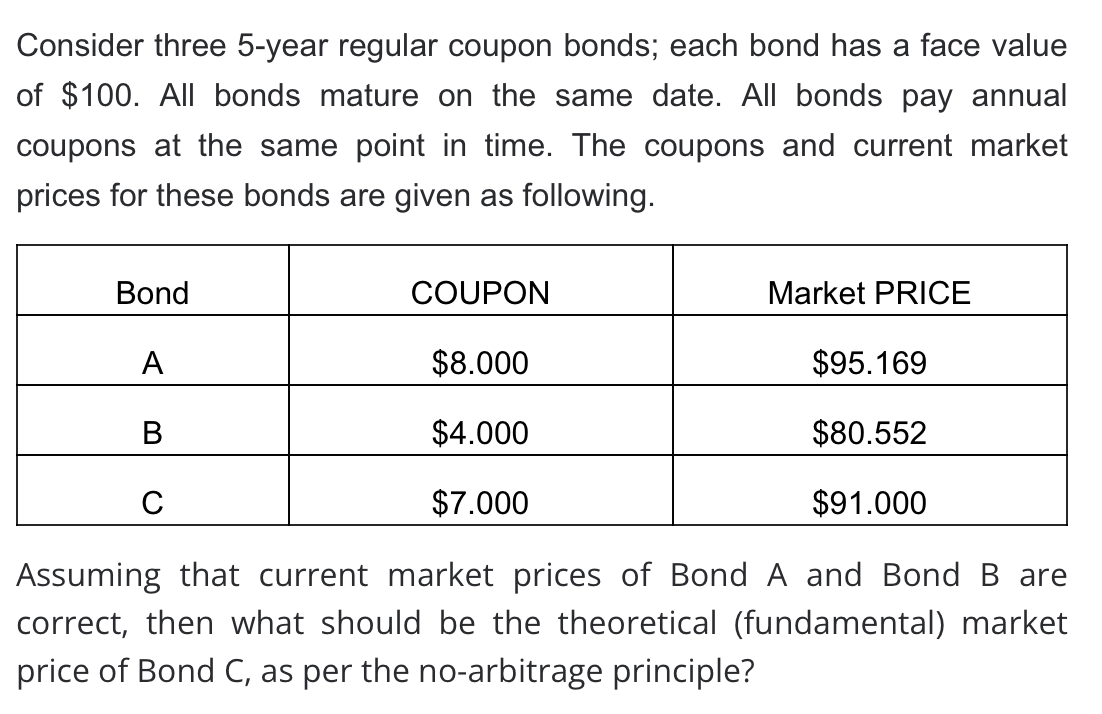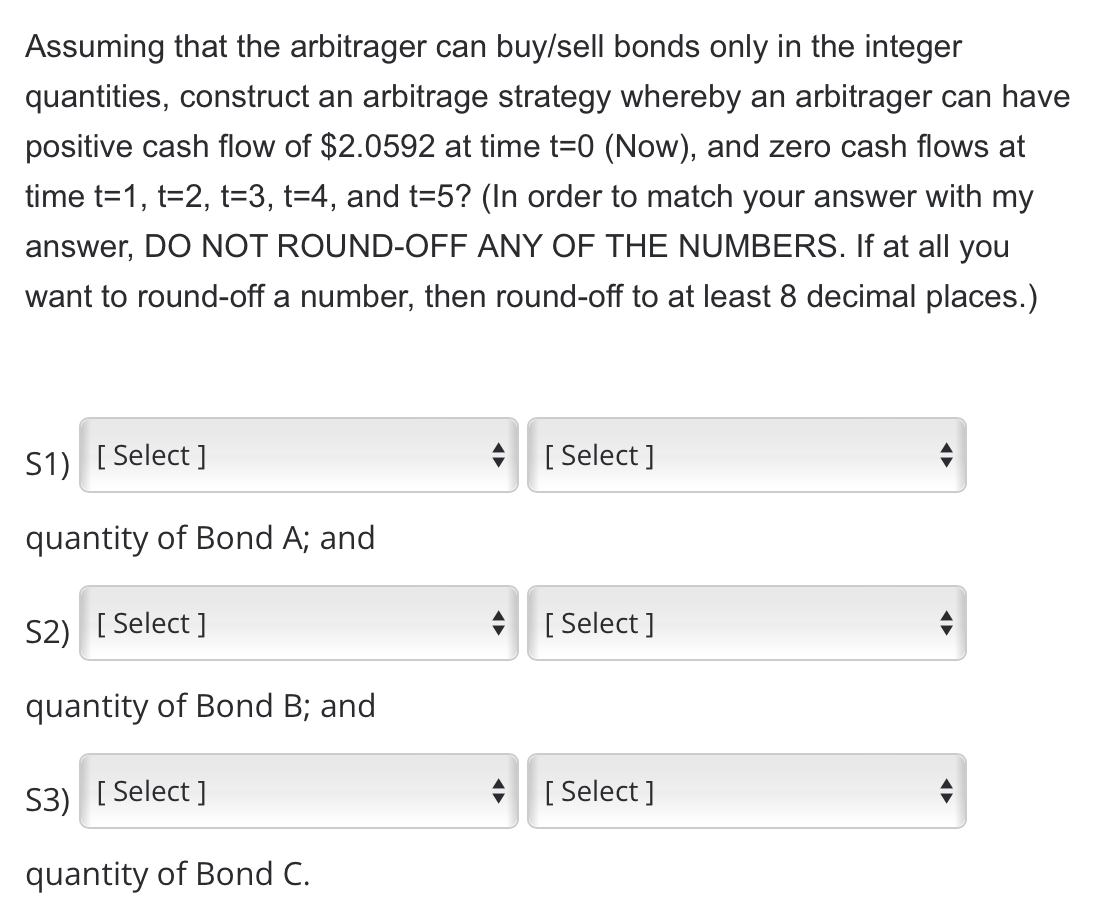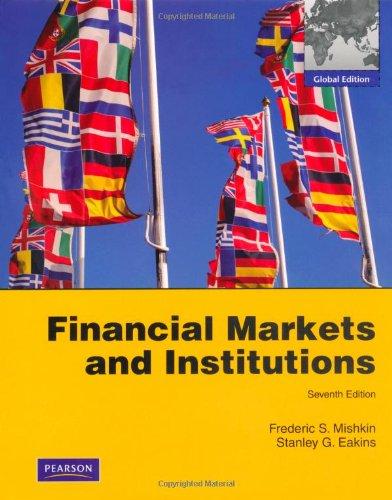Answered step by step
Verified Expert Solution
Question
1 Approved Answer
S1) {Buy , Sell} {1, 2, 3, 4, 5, 6, 7) S2) {Buy , Sell} {1, 2, 3, 4, 5, 6, 7} S3) {But ,


S1) {Buy , Sell} {1, 2, 3, 4, 5, 6, 7)
S2) {Buy , Sell} {1, 2, 3, 4, 5, 6, 7}
S3) {But , Sell} {1, 2, 3, 4, 5, 6, 7, 9}
Consider three 5-year regular coupon bonds; each bond has a face value of $100. All bonds mature on the same date. All bonds pay annual coupons at the same point in time. The coupons and current market prices for these bonds are given as following. Bond COUPON Market PRICE A $8.000 $95.169 B $4.000 $80.552 $7.000 $91.000 Assuming that current market prices of Bond A and Bond B are correct, then what should be the theoretical (fundamental) market price of Bond C, as per the no-arbitrage principle? Assuming that the arbitrager can buy/sell bonds only in the integer quantities, construct an arbitrage strategy whereby an arbitrager can have positive cash flow of $2.0592 at time t=0 (Now), and zero cash flows at time t=1, t=2, t=3, t=4, and t=5? (In order to match your answer with my answer, DO NOT ROUND-OFF ANY OF THE NUMBERS. If at all you want to round-off a number, then round-off to at least 8 decimal places.) S1) [ Select ] ^ [Select] quantity of Bond A; and S2) [Select] A [ Select] quantity of Bond B; and 53) [Select ] A [ Select] quantity of Bond C. Consider three 5-year regular coupon bonds; each bond has a face value of $100. All bonds mature on the same date. All bonds pay annual coupons at the same point in time. The coupons and current market prices for these bonds are given as following. Bond COUPON Market PRICE A $8.000 $95.169 B $4.000 $80.552 $7.000 $91.000 Assuming that current market prices of Bond A and Bond B are correct, then what should be the theoretical (fundamental) market price of Bond C, as per the no-arbitrage principle? Assuming that the arbitrager can buy/sell bonds only in the integer quantities, construct an arbitrage strategy whereby an arbitrager can have positive cash flow of $2.0592 at time t=0 (Now), and zero cash flows at time t=1, t=2, t=3, t=4, and t=5? (In order to match your answer with my answer, DO NOT ROUND-OFF ANY OF THE NUMBERS. If at all you want to round-off a number, then round-off to at least 8 decimal places.) S1) [ Select ] ^ [Select] quantity of Bond A; and S2) [Select] A [ Select] quantity of Bond B; and 53) [Select ] A [ Select] quantity of Bond CStep by Step Solution
There are 3 Steps involved in it
Step: 1

Get Instant Access to Expert-Tailored Solutions
See step-by-step solutions with expert insights and AI powered tools for academic success
Step: 2

Step: 3

Ace Your Homework with AI
Get the answers you need in no time with our AI-driven, step-by-step assistance
Get Started


